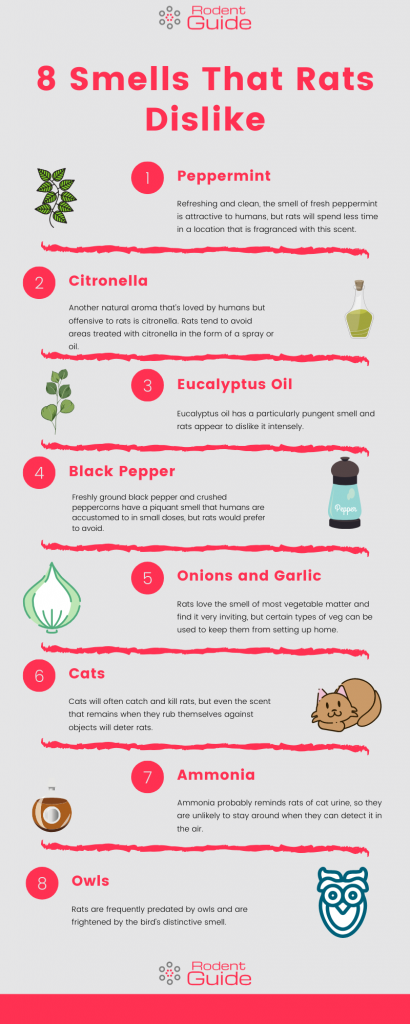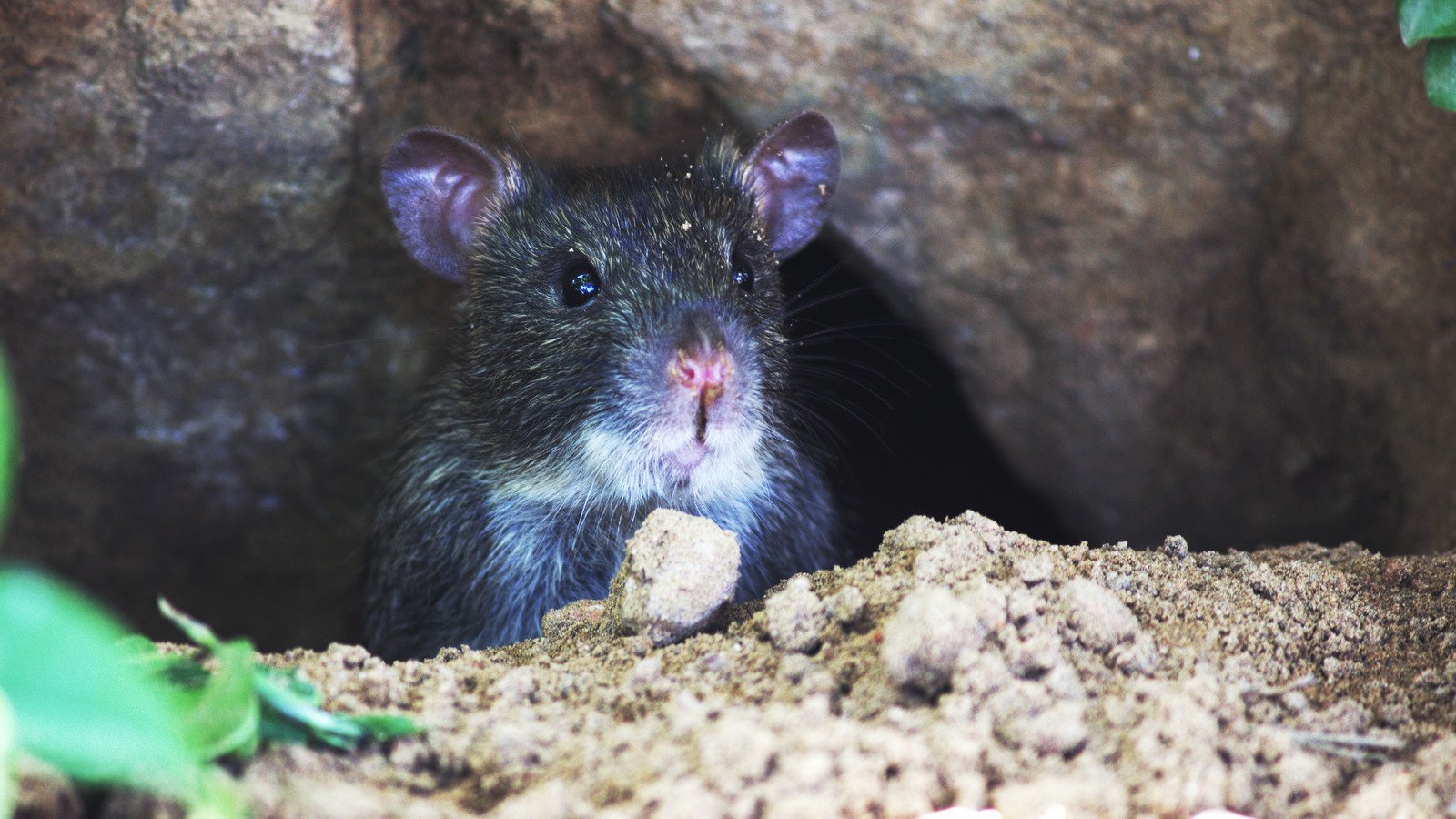Although rats give off an incredibly pungent odor that is musky and unpleasant to humans, their own sense of smell is highly advanced. This ability enables them to track down food and avoid danger successfully. It also makes them sensitive to a range of distinctive aromas – most of which aren’t offensive to humans. But, what smells do rats dislike?
A rat’s sense of smell can be exploited effectively when it comes to driving them away from specific areas and preventing them from returning to cause a nuisance.
When used in combination with other techniques such as keeping an environment clean and decluttered, some aromas ensure that rats are not attracted to the home. Rat’s sensory organs can certainly be used to our advantage, but what smells do rats dislike the most?
What Smells Do Rats Dislike? Here Are 8 of Them!

Peppermint
Refreshing and clean, the smell of fresh peppermint is attractive to humans, but rats will spend less time in a fragranced location with this scent.
It may be naturally occurring and non-toxic to us, but rats are known to keep away. To use this method, you could plant peppermint in the garden or pots and leave it to spread, as it is very fast growing.
Alternatively, treat the entrances to your home with a peppermint spray and level cotton wool balls soaked in peppermint oil in corners.
Citronella
Another natural aroma that humans love but offensive to rats is citronella, although burning candles scented with this citrusy scent is unlikely to work. Rats tend to avoid areas treated with citronella in the form of a spray or oil.
Citronella can put them off feeding, but also has an impact on where they forage and nest.
However, because citronella is relatively light and organic, it will need to be reapplied every day to maintain its effectiveness.
Eucalyptus Oil
Eucalyptus oil has a particularly pungent smell, and rats appear to dislike it intensely. It has been known to stop them from visiting and nesting in specific areas and is easy to apply in concentrations of up to 20% using a spray bottle.
Like most natural solutions, it has to be reapplied each day to remain effective, but it smells great to humans on the plus side.
Black Pepper
Freshly ground black pepper and crushed peppercorns have a piquant smell. A smell that humans are accustomed to in small doses, but rats would prefer to avoid.
Pepper is easy to sprinkle around entrance points and other places you think rats are congregating.
Onions and Garlic
Rats love the smell of most vegetable matter. They find it very inviting, but certain types of veg can be used to keep them from setting up home. The most useful varieties are strong-smelling white onions, garlic, and also peppers.
Onions and garlic have an overwhelming smell that rats hate, but it is the capsaicin in peppers that they want to avoid. This could be because capsaicin is what gives the pepper its heat.
Smelly vegetables are most effective at deterring rats when they are chopped up. Place them near the rats nest or run.
Cats
Cats will often catch and kill rats. They are a natural predator! The scent that remains when they rub themselves against objects will deter rats. Similarly, the smell of cat urine in the garden will put rats off. The scent signals danger and creates a stress response.
Rats can be determined, especially when there are places to hide from predators, but pet cats are an excellent deterrent in more ways than one.
Ammonia
Ammonia probably reminds rats of cat urine. That means they are unlikely to stay around when they can detect it in the air. The best way to use it as a repellent is to spritz around cleaning products that contain ammonia.
The caustic aroma is unpleasant to humans, so it is powerful enough to scare away rats even when heavily diluted.
Start by mixing it with at least 50% water. Then pour into a spray bottle and dispense to the areas you suspect to have a rat problem.
Owls
Owls are a natural predators of a rat, which means that rats are frightened by the bird’s distinctive smell.
It may be undetectable to us, but the residual aroma on owl feathers is often enough to put them off. All you need to do is source some owl feathers! Sure, it won’t be easy for most people, but you can get them.
If you can gather them regularly, place owl feathers into rat burrows and other places you think rats might be hiding. The threat of a predator is often enough to clear them in the short term, at least.
Frequently Asked Questions

What scent will repel rats?
Rats hate smells that represent danger. To them, this ranges from the urine and scent of a carnivore to harsh chemical smells and very powerful organic aromas. Any of these can be spread around a house, outbuildings, or garden to keep them out.
Do rats hate the smell of bleach?
The strong chemical smell of substances like bleach is highly repellent to rats and can be used to stop them from entering a home. Bleach can be mixed with water and dispensed in a spray bottle but many humans also dislike the powerful smell and it can quickly stain surfaces.
Does vinegar keep rats away?
You might not want your home to smell vinegar, but it can be an effective temporary solution to a rat infestation. Pour it down open pipes outside and even into internal plumbing to drive them off. A vinegar rat repellent is a good way to keep rats away.
Conclusion
What smells do rats dislike? Now that you have read the post, you will know at least 8 of them!
Although it may take more effort to rid a home or garden of rats naturally, this route can undoubtedly have positive results.
It is relatively easy to source and apply these aromas. Rats don’t like them, and these substances can put them off returning.
To make your pest control system even more successful, it’s best to use these techniques alongside others.
Block any external entryways, keep food in sealed containers and ensure the area around your property is kept tidy.
Good luck!







